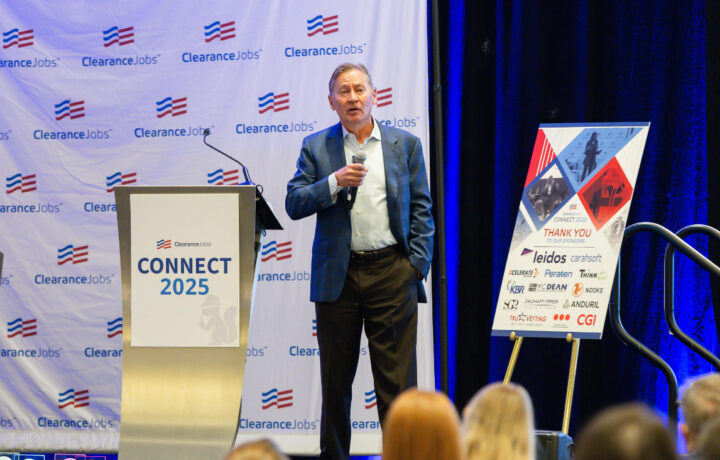In a data-dense discussion led by Art Zeile, CEO of DHI Group—the parent company of Dice and ClearanceJobs—he argued that AI’s influence on hiring is accelerating.
On Dice, the share of job postings requiring at least one AI skill rose from roughly 10% at the start of 2024 to 38% by June 2025, reaching about 40% in September. In the cleared market, ClearanceJobs currently shows about 10% of postings asking for AI skills—evidence that government/GovCon adoption follows the commercial sector by a few years.
What employers want is also evolving. After a 2024 focus on foundational AI researchers and prompt specialists, 2025 demand has shifted toward the “AI orchestrator”—consultants and analysts who bridge LLMs (or smaller domain models) to real business workflows and outcomes. Experience demand is tilting senior: more roles for 6–9+ years/10+ years, and fewer for 0–2 years as entry-level coding becomes easier to automate. Still, the speaker cautioned: every senior engineer starts as a junior.
Candidate sentiment is a warning sign. In Dice’s Trust Gap in Tech Hiring 2025 survey, 80% of tech professionals trust fully human hiring, 46% trust human+AI, and only 14% trust AI-only processes. Many tailor résumés for keywords (45%), mass-apply (applies per posting roughly doubled from 2024 to 2025), use AI to apply end-to-end (~19%), drop out (~19%), or go “old-school” and network (~12%). Concerns about bias are acute: a Brookings analysis found only 6.3% same-matching and 85% preference for white-associated names in tested AI screeners; Amazon previously shut down a biased automated screener; and Dice now offers an unbiased filter that anonymizes names, photos, and certain school data.
Bottom line: AI-related hiring is durable. Organizations that pair practical AI orchestration with transparent, human-in-the-loop recruiting—and adopt de-biasing practices—will be best positioned to earn candidate trust and win scarce talent.




